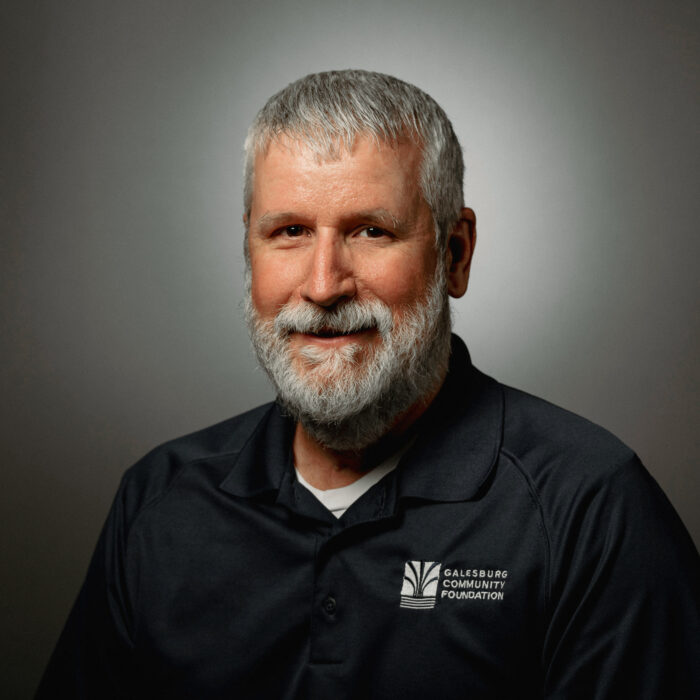Like many small towns across the Illinois prairies, Roseville has seen its fair share of changes through the years. Along with the change that inevitably comes in time, so too have opportunities for growth and preservation blossomed in the town. Thanks to a collaboration with Twomey Foundation, United Way of Warren County and Galesburg Community Foundation, the Warren County Community Fund Initiative was formed to give towns in Warren County the chance to take full advantage of these opportunities. With this, the Roseville Community Fund has taken root in the town to support the health and sustainability of the community for generations to come.
Carol Shaw, a member of the Roseville Community Fund advisory board, has lived her whole life in the Roseville area. Reflecting on her lifelong home, Shaw remembers Roseville as “a community where everyone was willing to help each other…That’s one thing I’ve always respected about the community and the residents. When someone is going through a rough time, someone was willing to step up and help.”
Now, with the Roseville Community Fund, Shaw is excited about the prospects of translating what she has valued so much about her hometown into action. Shaw explains that “like every other small town, we’ve struggled with lost business. I remember growing up and there was a business in every building. However, I feel we are blessed because we still have a lot—you just don’t see that everywhere. Small communities like us need to do all we can to preserve [what we have] for the next generation.”
This desire to see Roseville continue to flourish for generations to come is what inspired Shaw to follow a postcard invitation she received in the mail to an informational meeting hosted by the Galesburg Community Foundation on the new Warren County Community Funds Initiative.
The Initiative offers challenge grants of up to $70,000 to establish a community fund for each community of Roseville, Monmouth and Alexis. By fundraising $70,000 each, these community funds would create a starting endowment of $140,000 specifically designated to support and strengthen the community.
Funds such as these are a grassroots method for ensuring that a town continues to have the resources necessary for local needs. Importantly, donating to community funds also guarantees that residents’ contributions are destined to stay local, allowing people to see the direct impact of their generosity in their own hometown. As many small towns and rural places are often those who struggle the most to uphold critical organizations and programs, having a community fund overseen by area residents funding this infrastructure with local dollars quickly becomes a source of both town pride and citizen power.
Recognizing the larger implications for building a community fund in Roseville, Shaw recalls that she was struck by “listening to the fact that Roseville was being given this amazing gift of $70,000 to give right back to the community if we could raise the funds. I began to think about things that I didn’t even consider until this meeting. I started to think about what [assets] Roseville actually had and that we should do all we can to invest in and support them.”
After hearing the offer on the table, Shaw underscored that she had to do all it took to make sure Roseville had a community fund. “How often does someone just tell you there’s $70,000 just sitting there waiting for you to do something with it,” she says, “How can you let that go? There’s so much we could do with it in the community.”
For Shaw, an important detail in setting up the fund was that the donations raised from Roseville residents stay in Roseville. She clarifies by explaining that “many times people want to do something good but don’t always know how to and they want to make sure that any financial gifts are used in the way its intended. So, even if we don’t match [the challenge grant], the funds will stay there until they’re matched.”
Excited to turn vision into reality, Shaw worked closely with another active Roseville resident, Cheryl Britt, to host an open house in Roseville to gauge the community’s interest in setting up a community fund, as well as to recruit fellow advisory board members. By the end of the meeting, Shaw recounts that people were energized at the prospects for the town, and there was no problem finding “more than enough volunteers to serve on the Community Fund committee.”
While the onset of the pandemic presented new challenges for the Roseville Community Fund, Shaw remarks that, above all, the struggles we have faced highlighted the importance of home and our desire to give back:
“People are trying to come back and reinvest in any way. You can see the community is pulling together and bringing back that spark to let everyone know that this is a great place to open your business, raise your kids, and own a home. When people come together and believe in something, it’s usually successful. In Roseville, we’ve been lucky they did that for the community center, and the Community Fund can do the same thing.”
Currently, the Roseville Community Fund is halfway to their $70,000 goal under the challenge grant and is actively working with residents and community partners to secure the remainder needed. Yet even as the Fund works to get on its feet, it has already played a major role in supporting charitable action in the Roseville community. This past holiday season, the fund provided a grant to Helping Hands Food Pantry, ensuring families in Roseville received hams and turkeys for holiday meals.
Along with continuing to support organizations like the Helping Hands Food Pantry, Shaw notes that the possibilities are practically endless for how the Roseville Community Fund can give back to the town. From helping the village by supporting the library or community center to lending a hand with the Warren County Fair, and even to beautification, business development, and community agriculture campaigns, Shaw says the Roseville Community Fund, its committee, and residents of the town are already dreaming big and eager to get to work for the home they love.




